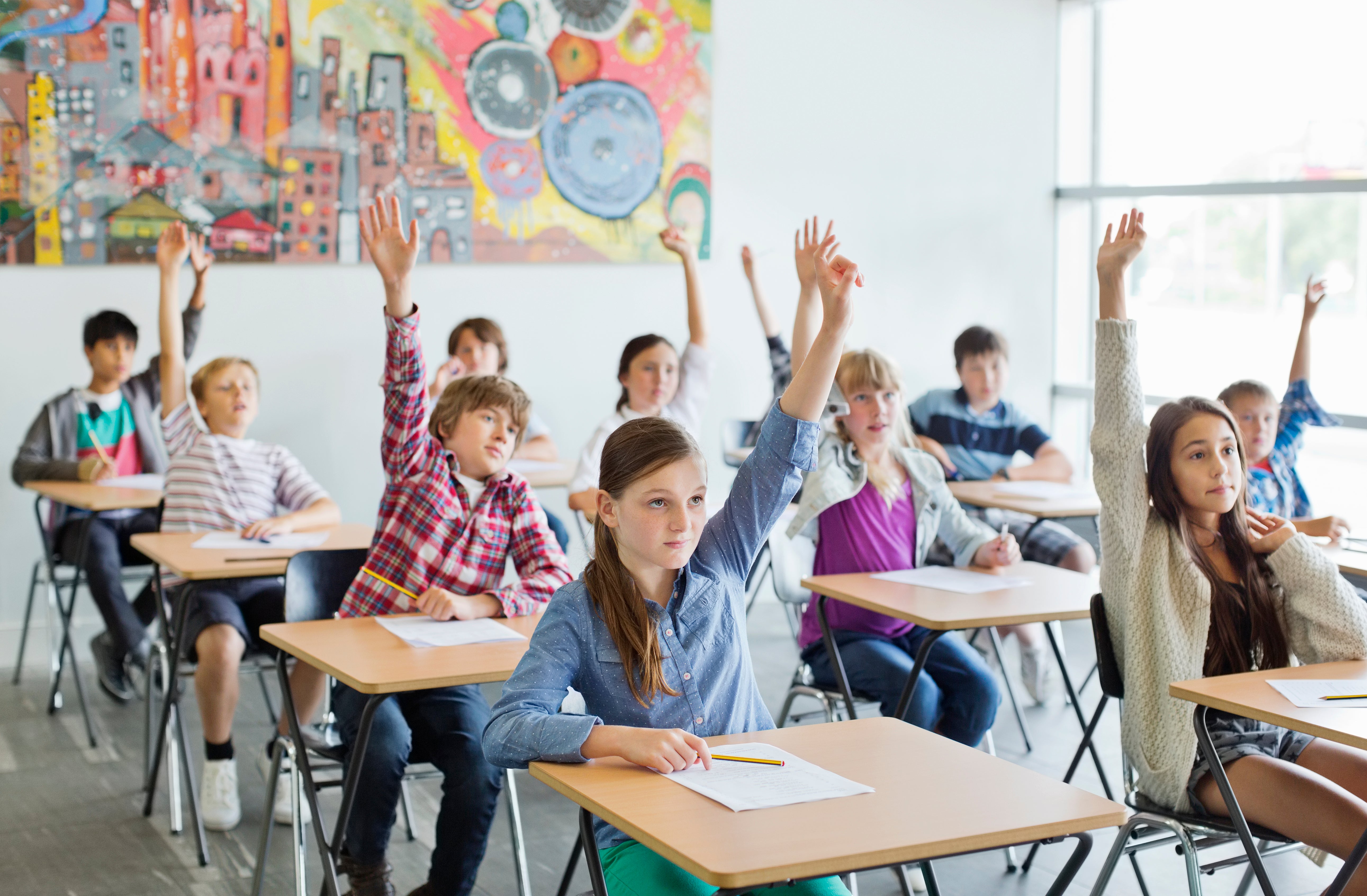Fundraising Ideas to Conserve Temecula Schools and Programs
Fundraising Ideas to Conserve Temecula Schools and Programs
Blog Article
Recognizing the Relevance of Institutions in Youngster Development and Area Growth
Colleges' engagement with local areas through service-learning efforts reinforces the bond in between family members and academic establishments. This cooperative connection highlights the value of institutions in supporting active citizenship and lifelong discovering habits.
Academic Achievement
Academic success works as a keystone of child growth, providing the foundation upon which future knowing and success are constructed. Colleges play a crucial role in promoting this academic development, offering structured atmospheres where kids can obtain vital understanding and cognitive skills. Standardized educational program make certain that pupils gain proficiency in core topics such as mathematics, science, and language arts, which are essential for both greater education and learning and professional possibilities.
In addition to passing on essential scholastic skills, colleges likewise cultivate critical thinking, analytical capabilities, and intellectual curiosity. These cognitive proficiencies are essential for navigating complex real-world scenarios and adapting to the ever-evolving demands of the modern-day workplace. Educators, as facilitators of discovering, employ varied instructional strategies to accommodate different learning styles, thereby optimizing individual student capacity.
Additionally, scholastic success is carefully linked to self-confidence and inspiration. Youngsters who experience scholastic accomplishments are more probable to establish a positive self-concept and a long-lasting passion for knowing. Schools also offer numerous resources, such as collections and technology, which even more enhance the instructional experience and prepare trainees for a technologically sophisticated culture.
Social Skill Growth
Beyond scholastic success, the function of colleges in social skill advancement is vital. Schools work as a main venue for children to discover and exercise important social abilities such as teamwork, conflict, and interaction resolution. In the structured environment of a classroom, pupils engage with peers, instructors, and various other school team, using numerous possibilities to create these essential capacities.
Effective social skill development in institutions is promoted via team tasks, collaborative jobs, and extracurricular programs. These interactions help trainees recognize social standards, develop empathy, and promote a feeling of community. Team jobs educate students exactly how to work together in the direction of a common objective, listen to different viewpoints, and browse arguments constructively.

The farming of social abilities during school years lays a foundation for future personal and expert connections. Save Temecula Schools. As students grow, the capability to effectively communicate and team up becomes progressively important, highlighting the school's vital duty in holistic youngster advancement
Direct Exposure to Variety
Direct exposure to variety in institutions is essential to cultivating a comprehensive frame of mind and expanding trainees' perspectives. Schools offer as a microcosm of the more comprehensive culture, and coming across varied cultures, languages, and socioeconomic histories within this atmosphere outfits pupils with essential abilities for browsing a progressively globalized globe. This exposure urges empathy, reduces prejudices, and advertises shared regard among peers.
Varied classrooms likewise enhance social and cognitive growth. Research suggests that pupils who interact with peers from varied backgrounds show far better analytic abilities and creativity. They learn to value various point of views, which improves class conversations and promotes a much more dynamic learning experience. This understanding of diversity prepares pupils for future offices that value multicultural proficiency.

Area Interaction
The benefits of varied class prolong past the school walls, Read Full Report fostering a strong feeling of neighborhood engagement amongst trainees. By engaging with peers from various cultural, socioeconomic, and ethnic backgrounds, trainees get a wider perspective and a recognition for diversity. This exposure encourages them to end up being active citizens that want to contribute positively to their areas.
Schools that highlight neighborhood interaction typically incorporate service-learning projects, which permit students to resolve real-world troubles while using academic abilities. These tasks not only boost pupils' understanding of their coursework but also instill a feeling of obligation and compassion. Additionally, collaborations in between schools and local companies offer pupils with possibilities to take part in community events, additionally solidifying their duty as positive area participants.
Furthermore, parental and neighborhood participation in institutions reinforces the bond between academic establishments and the neighborhoods they serve. Via these efforts, institutions play an click to investigate essential function in supporting area involvement and promoting social growth.
Lifelong Knowing Behaviors
Creating long-lasting discovering habits is important for a child's continuous growth and versatility in an ever-changing world. Institutions play an essential duty in instilling these practices by producing a setting that fosters interest, critical thinking, and a love for knowledge. Via varied curricula and after-school activities, educators encourage students to check out different subjects, examine information seriously, and use their learning to real-world scenarios.

Moreover, colleges supply an organized atmosphere where children can create self-control and time management skills, both of which are crucial for continual learning. By stressing the importance of setting objectives, reviewing progression, and adjusting techniques, instructional institutions prepare students to navigate the complexities of adult life, ensuring they remain long-lasting students and factors to society.
Conclusion
In final thought, schools are crucial in promoting youngster development and community development by giving environments conducive to scholastic success, social ability development, and direct exposure to variety. Inevitably, colleges cultivate lifelong learning behaviors, furnishing individuals with the necessary knowledge and abilities to contribute favorably to culture.
In the structured atmosphere of a class, students communicate with peers, instructors, and other institution team, supplying many possibilities to create these important capacities.
In significance, exposure to variety within colleges not just enhances individual students however also strengthens the social fabric of the community as a whole.
The benefits of diverse class extend past the school walls, fostering a solid feeling of neighborhood engagement amongst pupils.Colleges that stress community engagement frequently include service-learning tasks, which allow students to attend to real-world troubles while using scholastic abilities. Collaborations between colleges and local organizations offer pupils with opportunities to participate in area occasions, further solidifying their function as proactive community participants.
Report this page